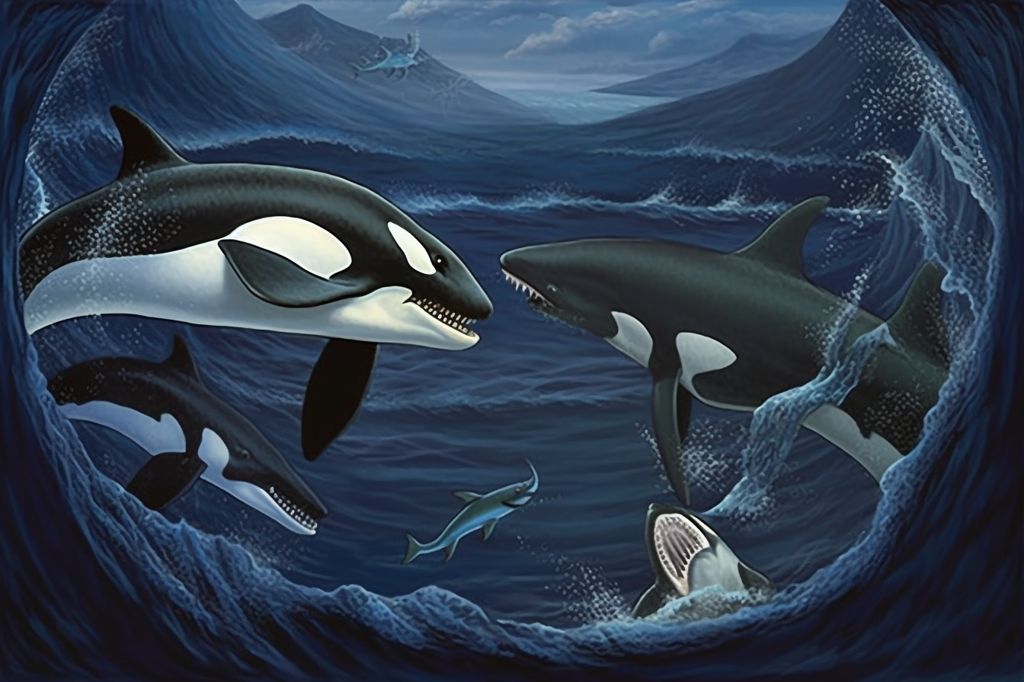False Bay, situated off the coast of South Africa, was once a bustling hub of great white shark activity. The area was popular among divers and tourists who witnessed the majesty of these oceanic predators up close. However, in recent years, False Bay has seen a sharp decline in shark sightings, ultimately leading to their complete abandonment of the area in 2019.
Orcas: The New Predators on the Block
The key drivers behind the disappearance of great white sharks in False Bay were Port and Starboard, a pair of orcas who had started preying on sharks in the area and eating their livers. While orcas are not typically known to attck great whites, these two individuals had developed a taste for the high-energy food source provided by the sharks’ livers. The orcas’ attacks began with broad-nose sevengill sharks before they moved on to the much larger great whites.
The Complexity of the Oceanic Food Chain
The images of a scarred great white, discovered by researchers in 2017, serve as a reminder of the complex food chain in the ocean. Even the most powerful predators, such as great white sharks, are not immune to attacks from other creatures. However, the scars on the shark’s body suggest that it may have narrowly escaped the orcas’ clutches. The researchers speculate that the orcas may have been perfecting their attack technique or that they can fail on a regular basis, just like any other predator.
The Importance of the Sharks to the Ecosystem
Great white sharks play a critical role in maintaining the balance of the ocean’s ecosystem. Their predatory behavior regulates the population of other marine species, such as seals and sea lions, preventing overgrazing of seaweed and different plant life. The ecosystem can become imbalanced without great white sharks, leading to negative impacts.
A Nostalgic Reminder of the Past
The decline of great white sharks in False Bay is a reminder of how quickly the natural world can change. It is easy to take for granted the presence of these magnificent creatures, but their disappearance serves as a poignant reminder of their importance to our planet’s delicate ecosystem. Considering the complex relationships between predators and prey in the ocean, we must remember to appreciate and respect the awe-inspiring creatures that call it home.








